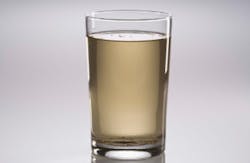WRF’s Colilert test used to find E. coli in Colorado drinking water following floods
DENVER, Colo. — Many water treatment plants and water distribution systems were damaged by the recent flooding in Colorado, making drinking water safety a primary public health concern, according to a press release.
Residents have been advised to boil drinking water while state health departments, private well operators and others are testing drinking water using the Colilert® test for the Escherichia coli (E. coli) virus, which can indicate the presence of human pathogens, according to the release.
The Colilert test, developed by the Water Research Foundation (WRF) in 1991, can detect E. coli in less than 24 hours and was used exclusively by the U.S. Environmental Protection Agency (EPA) following Hurricane Katrina, stated the release.
“Whenever there is a natural disaster, access to safe drinking water becomes an issue of immediate concern,” said Rob Renner, WRF executive director. “The Colilert test has proven absolutely instrumental to ensuring the safety of drinking water in impacted areas.”
The Colilert test is the most widely used drinking water test in the world, the release continued, often used following natural disasters as a fast, dependable method to test for E. coli.
Please visit www.WaterRF.org for more information.
